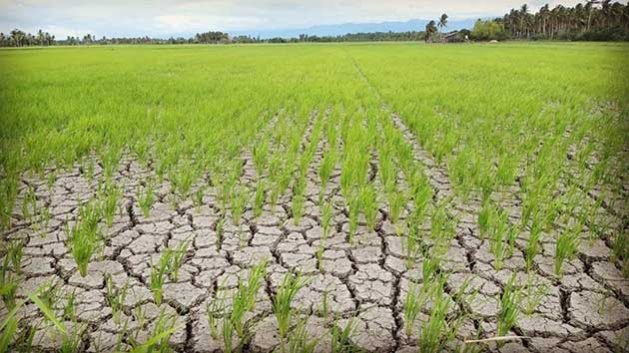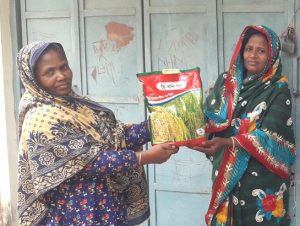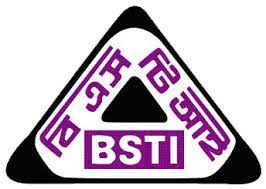The COVID-19 pandemic, global warming and the dramatic loss of biological diversity are clear manifestations of the ecological crises that threaten humanity and the planet. The 2020 issue of the Right to Food and Nutrition Watch entitled, “Overcoming ecological crises: reconnecting food, nature and human rights” is a rallying call to collectively resist the exploitation of nature and to overhaul how we produce, distribute and eat food if we are to regain control and radically transform our societies.
To address the deep crises that humanity faces today, we must overcome the separation between humans and the rest of nature. Our food systems are a perfect entry point. Small-scale food producers’ organizations, and Indigenous Peoples have proposed food sovereignty as a way to generate a broader, deeper societal transformation, especially through localized, circular economies. Agroecology is based on food sovereignty, builds on the co-evolution of human communities with their natural environment, and is opposed to the domination, exploitation and destruction of nature in the industrial food system. We must place agroecology at the core of our strategy to transform society.
A crucial step is to support the rights of those who know how to protect ecosystems namely, indigenous peoples and small-scale food producers such as peasants, small-scale fishers, pastoralists and forest dwellers. Women must be at the centre of this struggle: in many places, women are subject to structural discrimination and exclusion despite their special connection to seeds, forests, and wild plants. The UN Declaration on the Rights of Indigenous Peoples (UNDRIP) and the UN Declaration on the Rights of Peasants and Other People Working in Rural Areas (UNDROP) and other international instruments provide us with an opportunity to put centre stage the rights of peoples, groups and communities that directly depend on functioning ecosystems. Their management and production systems need to be fully recognized and protected, including their tenure and seed systems.
The recognition of the human right to a healthy environment could be a promising entry point where nature is not just something functional ‘at the service of our survival’. Protecting human dignity is inextricably linked to preserving nature and vice-versa, and managing land resources sustainably and promoting local knowledge, innovation and practices are crucial to addressing climate change. Convergence among social movements is needed to strengthen bottom-up proposals for systemic change to tackle interrelated crises.
– Third World Network
PRESS RELEASE: FOOD AT THE CENTER OF THE RESPONSE TO ECOLOGICAL CRISES
FIAN International, 13 October 2020
https://www.fian.org/en/press-release/article/food-at-the-center-of-the-response-to-ecological-crises-2633
Changing the dominant food system is indispensable to reset our relationship with nature and overcome today’s ecological crises, argues this year’s Right to Food and Nutrition Watch, released today.
Past and current policies have treated humans and the rest of nature as two separate and independent spheres. This artificial separation has led to domination and exploitation of the natural world by humans with dire environmental and social consequences. Within this framework, corporations and finance capitalism are driving the destruction of ecosystems, greenhouse gas emissions and the expulsion of communities from their lands. Tackling the ecological crises, the 2020 edition states, requires us therefore to reconnect nature and human rights. And food, where our connection with the rest of the living world is most evident, is the perfect starting point for doing so.
The global economic and political system transforms natural goods into tradeable commodities and exploits human labour. This illustrates the close link between the way societies exploit humans and nature, but also how much the environmental and social justice movements must work together to find alternative pathways. This year’s Watch, ‘Overcoming Ecological Crises: Reconnecting Food, Nature and Human Rights’ is a rallying call to collectively resist the exploitation of nature and to overhaul how we produce, distribute and eat food – if we are to regain control and radically transform our societies.
The 2020 issue illustrates how the profound social, political and ecological crises boil down to the same systemic patterns. Articles cover a range of issues from the role of industrial agriculture as a trigger of diseases like COVID-19, to how central land is to our responses to eco-destruction and climate change. The Watch also features an interview with activists and their views on veganism as one of today’s prominent currents to fight climate change.
Among its highlights:
• The separation of human societies from the rest of nature is reflected in a largely disconnected development between international human rights law on the one hand, and environmental law on the other.
• The COVID-19 pandemic sheds light on the problems of the industrial food system, which has driven biodiversity loss and created perfect conditions for the emergence of new pathogens and their transmission from animals to humans.
• Land and control over natural resources are central to mitigating climate change impacts, reducing emissions, protecting ecosystems and ensuring social justice.
• Agroecology and recent developments in international law provide entry points for real solutions to the ecological crises, which build on the practices and innovations of local communities.
• Convergence among social movements is strengthening bottom-up proposals for systemic change to tackle interrelated crises.
• Veganism is a growing ethical and political movement incentivized by environmental reasons, but that cannot be considered as a “one size fits all solution” to tackle climate change, given the different socio-economic and cultural contexts
Download ‘Overcoming Ecological Crises: Reconnecting Food, Nature and Human Rights’
https://www.righttofoodandnutrition.org/files/rtfn_watch12-2020_eng.pdf
For media enquiries please contact delrey@fian.org




